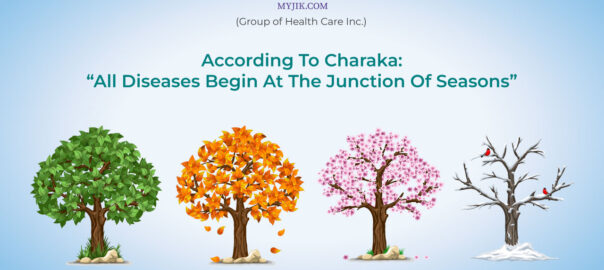 The words “organic” and “natural” are trending buzzwords of the twenty-first century. Every time we walk through an aisle at a mart, we keep getting bombarded by hundreds of labels boasting “non-GMO,” “100% natural,” and “organic”. But the question is, does the label matter?
The words “organic” and “natural” are trending buzzwords of the twenty-first century. Every time we walk through an aisle at a mart, we keep getting bombarded by hundreds of labels boasting “non-GMO,” “100% natural,” and “organic”. But the question is, does the label matter?
When items are marketed with such labels, they are often regarded as relatively safe and guaranteed to provide results, which is not entirely true. Hence, after digging deep into this, we discovered that there indeed is a massive difference between the two. And we thought educating ourselves on this subject and understanding the distinction between organic and natural products was essential.
We often believe that “natural food” is slightly processed and does not include hormones, antibiotics, or artificial flavours. And understanding what these labels signify will help safeguard us from potentially hazardous compounds in ordinary products.
Therefore, let’s explore and understand all the features of organic and natural food—
What Are Organic Products?
The first question we ask is, are organic products the real deal? No genetically engineered components are found in organic products; they contain no petrochemicals and have not been tested on animals.
Additionally, organic products are carefully selected to ensure they are safe for you to use. After extraction and processing, the natural qualities should remain intact. Hence, it is grown without hazardous pesticides, sewage sludge, antibiotics, irradiation, or artificial growth hormones. And organic items are often created from living organisms such as plants, vegetables, or fruits.
It is normal to be misled or perplexed by this information, as it is not actively promoted. But organic products are most likely manufactured using safe and sustainable farming practices and renewable energy. And we, as consumers, believe we can trust the folks who sell us food without checking it ourselves, which seems to be the main problem here.
Finally, everything boils down to the following points:
There are no synthetic colours, preservatives, or chemicals that exist.
A minimal amount of pesticides are permitted.
Antibiotics are not used regularly.
Improved land management
There will be no synthetic herbicides or fertilisers.
There is no use of growth regulators and genetically modified organisms.
Now that the concept of organic food seems clear, let’s understand what natural food is all about and the difference between the two—
What Are Natural Products?
In agriculture, “natural” denotes the product has not been chemically processed. Therefore there are no legislative regulations or norms for natural products. These goods are prepared in the most basic ways and require less regulation than organic food. The products are manufactured from plants and minerals.
Hence, their production costs are also low, and the materials they employ are high in minerals and vitamins. However, the FDA does not control the word “natural” on a label, so it is used much more freely than with an organic product.
Natural goods contain no preservatives, artificial scents, synthetic components, or other colourants. But, this does not always imply that they use organic components. Even if food or goods are branded “natural,” they may still include artificial components and be highly processed.
Despite the lack of rules on the term “natural,” natural products are often held to more significant standards than conventional ones. Always check the contents list before consuming a natural product or using an all-natural cleanser to ensure the product’s safety. HFCS (High fructose corn), an artificial sweetener, is used in many all-natural foods. It is derived from corn and sugar processed from sugar cane.
Therefore “natural” or “all-natural” products contain the following key points:
GMO-free ingredients
Limited or absent petrochemical components.
Natural ingredients stay intact due to the manufacturing process.
Cruelty-free products (not tested on animals)
Ingredients must be derived from natural sources such as plants, flowers, and minerals.
Free of sulfates, parabens and other potentially dangerous ingredients.
So, Which Is Better: Organic Or Natural?
Most consumers prefer and are willing to pay more for organic food over natural food since organic goods must adhere to tight standards and regulations, whereas natural foods do not. Organic items are often safer than natural products since the USDA rigorously controls them. One of the reasons consumers are converting to organic products instead of any other is because of this.
Conclusion:
Contrary to popular belief, food labelled as “natural” can be highly impacted by human activities. And here’s why – organic farms may try to be certified by both Indian and international standards. And even get certified by various organic food certifications, including the APEDA, FSSAI, USDA and authorised agencies, and EU organic standards.
However, after a farm is certified organic, some non-organic farmers can deceive consumers by unscrupulously distributing their products under that label through some private financial agreement. So, contrary to popular belief, human activities can highly impact ” natural ” food.















